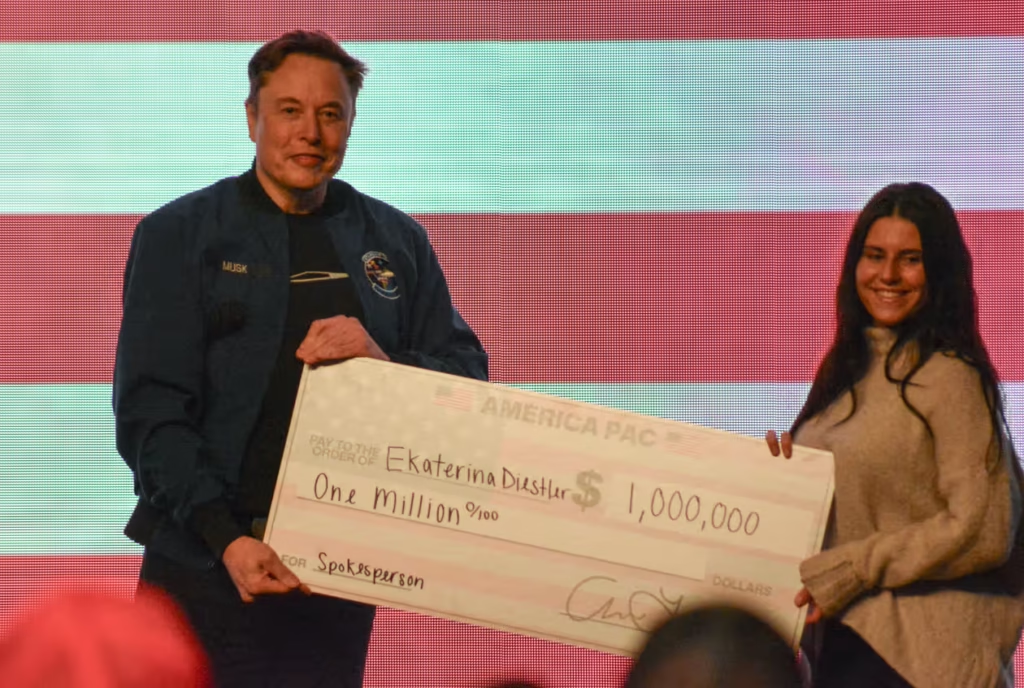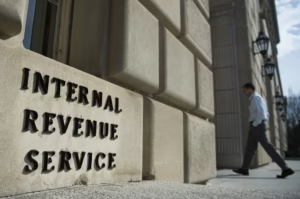Elon Musk handed out checks for a million dollars each to two Wisconsin voters Sunday night as he sought to drum up support for a Republican candidate for a seat on the state’s Supreme Court.
Those checks, which some say violate campaign finance laws, are being paid out of Musk’s private funds, but many Americans are wondering whether the Tesla (TSLA) CEO will spearhead an effort to fund handouts to taxpayers with savings claimed by the so-called Department of Government Efficiency, which Musk runs as an adviser to the Trump administration.
Last month, Musk said he would discuss with President Donald Trump an idea to fund taxpayer rebate checks with savings from DOGE, and he was asked about it again Sunday at a town hall meeting in Green Bay, Wis.
At Sunday night’s event, Musk didn’t rule out the idea that DOGE savings could be converted into rebate checks, but he did admit that the decision is not up to him.
“It’s somewhat up to the Congress and maybe the president as to whether specific checks are cut,” Musk said. “But whether a check is cut or not, if you reduce wasteful spending, the economy is going to be better off.”
While economic stimulus payments have become a regular feature of the modern fiscal policy toolkit, such direct payments have a relatively short history and have so far only been used as a strategy for stimulating the economy out of a recession or economic shock.
The George W. Bush administration originated the practice in the early 2000s in response to the dot-com bust and subsequent recession.
Bush returned to the approach in 2008 as the housing market collapsed, authorizing payments of up to $600 for individuals and $1200 for married couples. President Barack Obama also signed a law delivering stimulus checks to many Americans in 2009. Both Trump and President Joe Biden made use of these payments during their terms as a means of supporting the economy through the COVID-19 pandemic.
Economists debate the effectiveness of such payouts in stimulating growth, but in any case, history shows that Congress must authorize these sorts of payments, because the Constitution grants the legislative branch control over taxes and spending.
It’s also not clear that DOGE is saving the U.S. taxpayer as much as it claims. Though the entity’s website now says it has saved taxpayers $140 billion, or about $870 per taxpayer, that tally includes many errors and in many instances doesn’t provide enough information to fact-check the claims.
Real-time spending data from the Treasury Department indicates that federal spending is higher in 2025 than it was in 2024, casting doubt on the DOGE assertions.
Meanwhile, Republicans in Congress are in the process of writing a tax bill that would, at a minimum, extend Trump’s 2017 tax cuts, at a cost of more than $4 trillion.
GOP legislators are also struggling to find ways to include Trump’s campaign promises of eliminating taxes on tips, overtime and Social Security earnings, which could raise the cost of the legislation to more than $11 trillion.
Henrietta Treyz, director of economic policy at consulting firm Veda Partners, wrote in a client note Sunday that Republicans in Congress are wary of the steep budget cuts to programs like Medicaid that would be required in order to pay for these tax cuts, making it likely that whatever savings DOGE produces would need to go toward deficit reduction rather than taxpayer checks.
“Senate Republicans,” Treyz wrote, “are socializing to their members the idea that the 2017 tax cut extension will not be paid for.”





